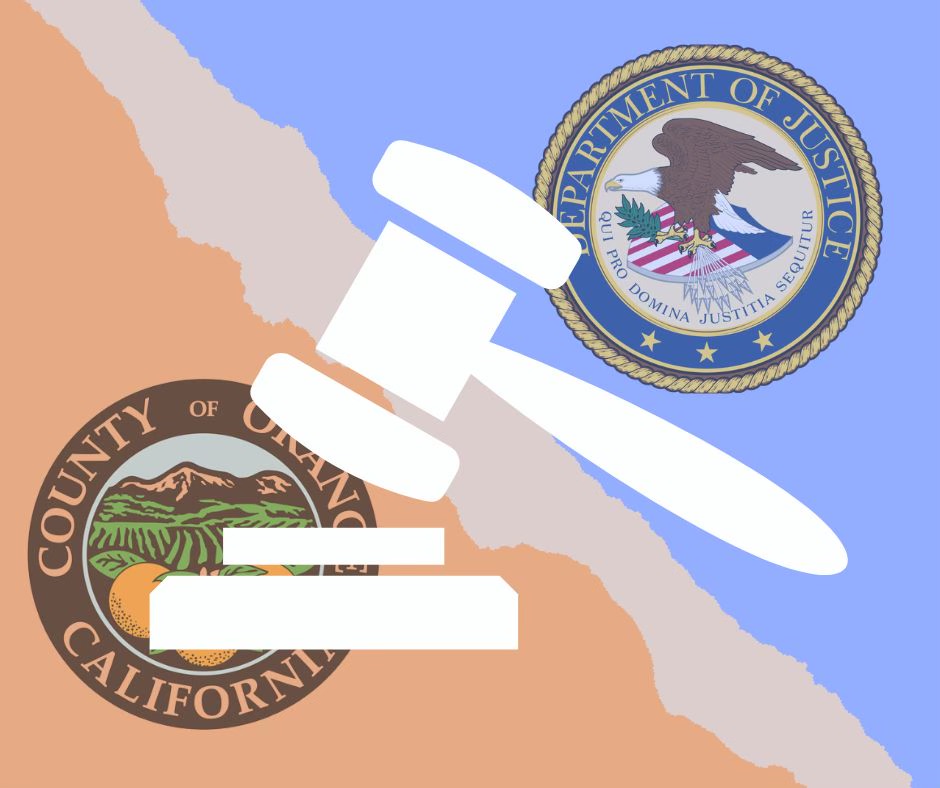The U.S. Department of Justice (DOJ) filed a lawsuit against Orange County on June 25, accusing top election officials of violating federal law by refusing to turn over unredacted voter registration records.
The DOJ originally requested detailed voter registration in 2020 as part of a nationwide investigation of election practices, in an attempt to identify whether non-American citizens were voting. The county responded with files on 17 individuals, but chose to redact sensitive information, citing Section 2194.1 of California’s Elections Code which states that any personal identifier, such as a Social Security Number, that appears on the affidavit of voter registration cannot be disclosed to any person.
“The California State Constitution has provided a right to privacy to all Californians since 1972,” Irvine City Councilmember Betty Martinez Franco said. “We have established legal processes to protect those rights. If any organization wants to access personal information, [it] can obtain a warrant from a judge.”
Over the years, Orange County has refused to submit the requested data, pushing the DOJ to take further measures. Although the county reportedly reached out to find a common ground days before the lawsuit was published, the DOJ disagreed and chose to pursue legal action. The ongoing lawsuit seeks voter ID data, social security numbers and driver’s license numbers. Now, the matter has escalated to a national level, with the DOJ filing federal lawsuits against California and five other states for not providing statewide voter rolls on Sept. 25. Both sides of the lawsuit are understandable, according to district candidate forum host and senior Alex Lingerfelt.
“On one hand, citizens should be the only ones voting in elections,” Lingerfelt said. “But, I can also see where concerns come from, as in if the Department of Justice does get the voter roll information and sees non-citizens are voting, then maybe they’re going to use that data for other purposes besides election integrity.”
A primary concern for non-voting citizens is how the government uses their personal data. A lawsuit of this volume may discourage citizens from registering to vote. Thus, local and state administrations are tasked with balancing transparency with privacy, according to Irvine City Councilmember Kathleen Tresseder.
“I want to make sure that any citizen who wants to vote is eligible to vote and feel free to register and vote,” Tresseder said. “I don’t want people to feel afraid to register to vote in case their information gets released to folks. They don’t want it to, and I can imagine that it’s very reasonable for our residents not to want the presidential administration to have their personal information.”
The county has asserted that it will not disclose voter information without a court order. A trial date has been set for March 31, 2026.





